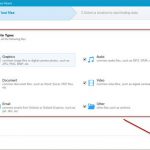Coding Skills Every Front End Developer Needs on Resume
A career as a front end developer is fun, exciting and profitable. However, there are some coding qualifications that are absolutely mandatory to enter the field. Let’s take a look at coding skills that every front end developer needs on his or her resume.

1. HTML
HTML is the backbone of front end development. Without HTML, a developer has nothing to fall back on and no language to show off. As we will discuss below, there are many skills and languages that stem from HTML. Nevertheless, this type of code is at the heart of webpage and must be mastered by every developer. Once you are experienced with HTML, take a proficiency exam online to receive a certification and show it off on your resume. In general, programming skills are paramount to good development. It’s less about knowing the technicalities of each language and more about being able to apply your knowledge to a novel situation. Knowing the basics of HTML is the bare minimum, and experience with its various branches is a plus that will impress any employer.
2. CSS
As the counterpart of HTML, CSS is another crucial skill for every front end developer to master. CSS dictates the appearance of most webpages and works perfectly in tandem with HTML. While developers don’t always have to write raw CSS, and often use packages and pre-built settings instead, they must have a fundamental understanding of how the code works. You need to be able to quickly read CSS and interpret it in the context of the page. All this talk about CSS and the significance of coding might have you worried, but it shouldn’t. Improving coding skills is very doable in 2020 with so many resources and educational content on the web.
3. Testing
Testing your work might seem simple, but there are many layers of nuance to it. Comprehensive unit tests are a task in itself and are often used to cross-check work between developers. A new front end developer must understand how to conduct tests and record results. If you’ve already completed a project or app as mentioned before, you’re only a few steps away from making it comprehensive with tests. Initialize a few tests and record this experience on your resume.
4. Debugging
Debugging is another part of the process that is deceptively complex. A novice debugger might take hours to detect an error, while an experienced debugger might know how to locate it within minutes. Any aspiring front end developer needs to prove that he or she is familiar with debugging tools and how to step through code. Mistakes are inevitable by human nature, but an employer will be impressed by a front end developer who knows how to amend these mistakes in a heartbeat.
5. Frameworks
Nobody likes to code from scratch, especially front end developers. Frameworks are incredibly useful to provide structure to your code and give you a basis to start from. Without a framework, a developer is working from nothing and essentially has to rebuild the wheel. If a resume includes proficiency with frameworks, a company knows that this candidate has valuable knowledge to offer. They know that this developer has more experience than just the basics from introductory computer science courses. For most front end web developer jobs, the employer will have a specific framework in mind for nearly all projects.
6. Javascript
If HTML sets the stage, Javascript is the script that calls the actors into motion. Every front end developer should be a seasoned Javascript user to smoothly integrate it into their code. The difference between good and bad Javascript is night and day. While they might both get the job done, quality Javascript is so much easier to read and edit. For a high profile company, quality code is on the menu, and any resume should attest to the person’s Javascript skills. Once again, you can incorporate this seamlessly into your projects.
7. Version control
Version control, such as git is essential to all developers. Code that isn’t professionally managed and uploaded is useless when sitting on a home screen. Version control allows developers to work with one another and make improvements while working online. Fortunately, it’s very easy to demonstrate proficiency here. Simply link any projects on your resume that have been uploaded to git and managed via version control. A recruiter will notice that everything is organized neatly, and you will be able to replicate these good habits in a working environment.
Conclusion
A front end developer needs a number of fundamental programming skills on their resume. Use the skills mentioned above to shape your learning and projects. You’ll be on your way to a front end development position in no time.








![Cryptocurrency Wave [Infographic]](https://technofaq.org/wp-content/uploads/2018/12/Riding-Crypto-Wave-150x150.jpg)








